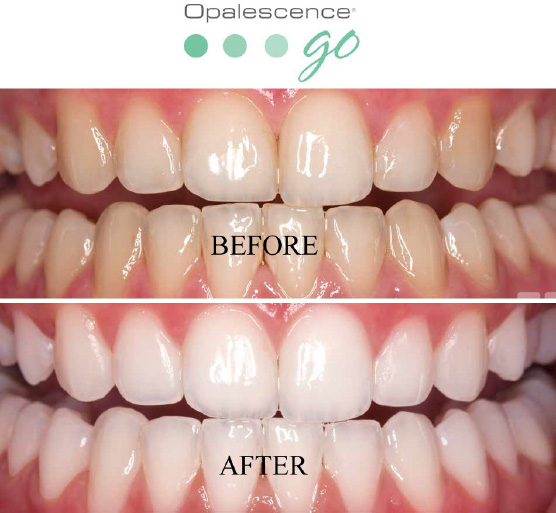Welcome to the world of improving your dental health through diet! It’s amazing how the foods we eat can have such a significant impact on the health of our teeth and gums. By avoiding sugary and acidic foods, and instead focusing on a balanced diet rich in fruits, vegetables, and dairy products, you can provide your teeth with the nutrients they need to stay strong and healthy. Combine this with good oral hygiene practices, and you’ll be well on your way to maintaining optimal dental health. So next time you reach for a snack, think about how it may be benefiting or harming your teeth and make the best choice for your smile! Have you ever wondered how your diet affects your dental health? This article will delve into the importance of eating the right foods to maintain strong and healthy teeth. By making simple changes to your diet, you can significantly improve your oral health and prevent complications such as tooth decay and gum disease.
Understanding the Impact of Diet on Dental Health
Your diet plays a crucial role in maintaining good oral health. Consuming sugary foods and drinks can lead to tooth decay, as sugars feed harmful bacteria in your mouth that produce acids. These acids attack the enamel on your teeth, weakening them over time. On the other hand, eating a diet rich in healthy foods for teeth, such as fruits, vegetables, and dairy products, provides essential nutrients like calcium and phosphorus. These nutrients help strengthen teeth and bones, making them more resilient to decay and damage.
The Role of Sugary Foods in Tooth Decay
You may not realize it, but the sugary snacks and drinks you consume throughout the day could be doing serious damage to your teeth. Sugars in foods like candy, cookies, and soda provide fuel for harmful bacteria in your mouth. These bacteria metabolize sugars, producing acids as a byproduct. These acids attack the enamel on your teeth, causing demineralization and eventually leading to cavities. By reducing your intake of sugary foods and drinks, you can help protect your teeth from decay and maintain a healthy smile.
The Benefits of Healthy Foods for Teeth
Eating a diet rich in fruits, vegetables, and dairy products can have a positive impact on your dental health. These foods provide essential nutrients like calcium, phosphorus, and vitamins that are crucial for maintaining strong teeth and bones. Calcium helps build and strengthen tooth enamel, while phosphorus works in conjunction with calcium to protect and repair teeth. Vitamins like A, C, and D play a key role in supporting healthy gums and enamel. By incorporating these nutrients into your diet, you can fortify your teeth against decay and promote overall oral health.

This image is property of pixabay.com.
Choosing the Right Foods for Optimal Dental Health
When it comes to improving your dental health through diet, making smart food choices is key. By selecting foods that are beneficial for your teeth and avoiding those that can harm them, you can optimize your oral health and reduce the risk of dental issues. Here are some guidelines for choosing the right foods for optimal dental health:
Foods to Include in Your Diet
- Fruits and Vegetables: Fresh fruits and vegetables are rich in vitamins and minerals that support healthy teeth and gums. Crunchy fruits and vegetables, like apples and carrots, can also help clean teeth and stimulate saliva production, which neutralizes acids and aids in remineralization.
- Dairy Products: Dairy products like milk, cheese, and yogurt are excellent sources of calcium and phosphorus, which are essential for tooth strength and enamel protection. Cheese, in particular, can help raise the pH level in your mouth, reducing the risk of decay.
- Lean Proteins: Foods high in protein, such as lean meats, poultry, fish, and eggs, provide important nutrients like phosphorus and vitamin D that promote strong teeth and bones.
- Whole Grains: Whole grains like brown rice, quinoa, and whole wheat bread are rich in fiber and B vitamins that support overall oral health. They also require more chewing, which can help clean teeth and stimulate saliva production.
Foods to Avoid or Limit
- Sugary Snacks and Drinks: Limit your intake of sugary foods and drinks, such as candy, soda, and sweetened beverages. Opt for water or unsweetened drinks instead to help reduce the risk of tooth decay.
- Acidic Foods and Drinks: Citrus fruits, tomatoes, and acidic beverages like coffee and wine can erode tooth enamel over time, leading to sensitivity and decay. Limit your consumption of acidic foods and drinks and rinse your mouth with water afterward.
- Sticky and Hard Foods: Foods that are sticky or hard can damage dental work like fillings and crowns, as well as potentially crack or chip your teeth. Avoid chewing on hard candies, ice, or popcorn kernels to protect your dental health.

This image is property of pixabay.com.
Meal Planning Tips for Better Dental Health
Planning meals that are nutritious and beneficial for your dental health doesn’t have to be complicated. By incorporating a variety of foods that support strong teeth and gums into your daily diet, you can enjoy better oral health and reduce the risk of dental problems. Here are some meal planning tips to help you improve your dental health:
Eat a Balanced Diet
- When planning your meals, aim to include a variety of foods from all the major food groups, including fruits, vegetables, dairy products, lean proteins, and whole grains. This balanced approach will ensure you’re getting all the essential nutrients your teeth need to stay healthy.
Snack Wisely
- Choose healthy snacks like fresh fruits, vegetables, nuts, and low-fat dairy products to satisfy your cravings and support your dental health. Avoid sugary snacks and drinks that can harm your teeth and increase the risk of decay.
Drink Plenty of Water
- Water is essential for maintaining good oral health, as it helps rinse away food particles and bacteria that can lead to decay. Drink water throughout the day and after meals to keep your mouth clean and hydrated.
Limit Sugary and Acidic Foods
- While it’s okay to enjoy the occasional treat, try to limit your consumption of sugary and acidic foods that can damage your teeth. Opt for healthier alternatives like fresh fruit, nuts, or whole grain snacks to satisfy your sweet tooth.

This image is property of pixabay.com.
The Importance of Good Oral Hygiene Habits
While eating a healthy diet is crucial for maintaining strong and healthy teeth, it’s also essential to practice good oral hygiene habits to prevent dental issues. Brushing your teeth twice a day, flossing daily, and visiting your dentist regularly for check-ups and cleanings are key components of a comprehensive dental care routine. By combining a nutritious diet with proper oral hygiene practices, you can enjoy optimal dental health and a beautiful smile for years to come.
Improving your dental health through diet doesn’t have to be overwhelming. By making small changes to your eating habits and following the tips outlined in this article, you can take proactive steps to protect your teeth and maintain a healthy smile. Remember that your diet plays a significant role in your overall oral health, so choose foods that benefit your teeth and avoid those that can harm them. With the right nutrition and good oral hygiene habits, you can achieve and maintain strong and healthy teeth for a lifetime.



